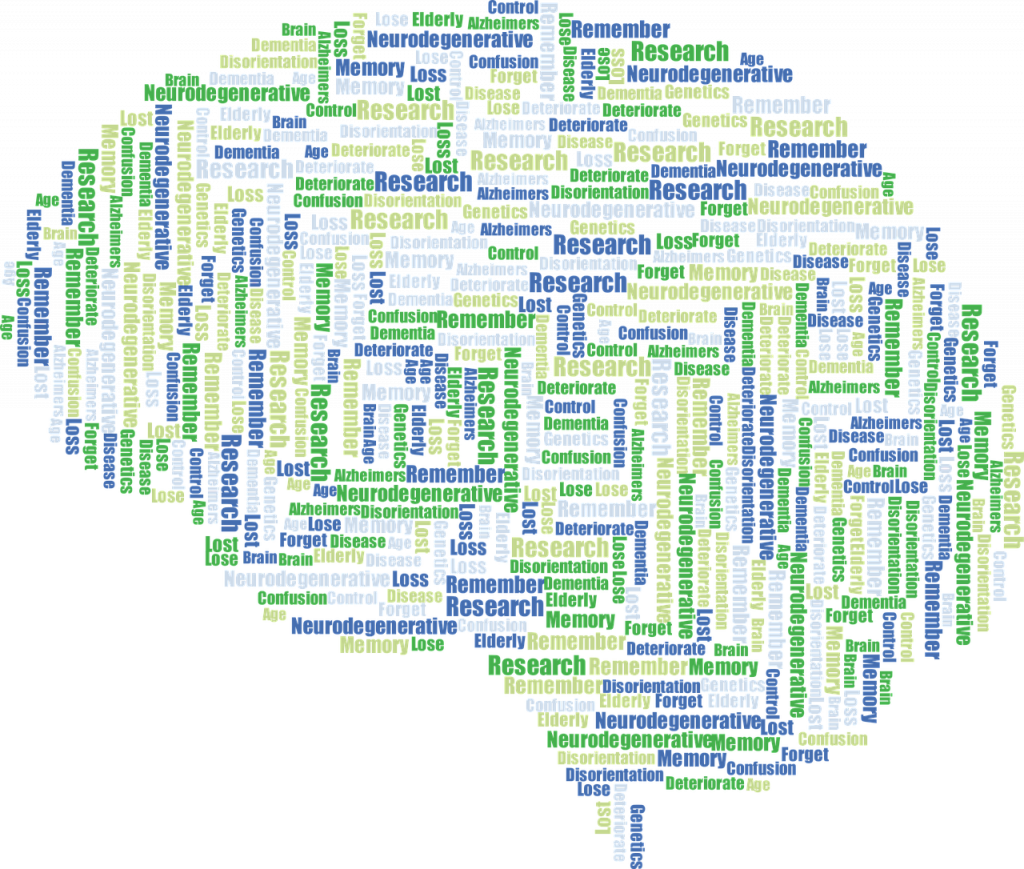
Dementia, according to the NHS, is a ‘syndrome’ associated with the decline of brain functioning through progressive conditions. It works by damaging brain cells in so messages cannot be sent to and from the brain efficiently, preventing normal body function.
Alzheimer’s Society states that roughly 850,000 people in the UK have dementia; 1 in 14 people over the age of 65 will develop the syndrome, and it affects 1 in 6 people over the age of 80.
It is important to get a diagnosis, as there is no current cure for dementia, but if detected early, there are ways to slow it down and maintain mental function.
It can lead to several problems and symptoms including:
- Memory loss
- Thinking speed
- Mental sharpness and quickness
- Language
- Understanding
- Judgment
- Mood
- Movement
- Difficulty in carrying out daily activity
If you have any symptoms or know someone who does, it is important to seek help from your GP. It is essential to remember that dementia is not a natural part of ageing.
Types of Dementia
As dementia is an ‘umbrella term’, there are over 200 subtypes as indicated by Dementia UK, but the 5 most common are:
- Alzheimer’s Disease is classed as the most common cause of dementia. An abnormal protein surrounds the brain cells and another protein damages their internal structure, and over time the chemical connections between brain cells are lost and cells begin to die.
- Vascular Dementia is another common cause of dementia, triggered by reduced blood flow to the brain, which in turn affects the function of the nerve cells, causing them to eventually die. This can happen due to a stroke, or small vessel disease (a narrowing of the small blood vessels inside the brain).
- Mixed Dementia is essentially a mix of two type of dementia, e.g. Alzheimer’s and Vascular dementia.
- Dementia with Lewy Bodies is presented when the Lewy bodies (small clumps of protein called alpha-synuclein) develop inside the brain that then go onto the damage the cells, which in turn die. This type of dementia is closely related to Parkinson’s Disease, and have similar symptoms.
- Frontotemporal Dementia (including Pick’s Disease) is most often diagnosed in younger people, from ages 45-65. It is caused by abnormal clumping of proteins in the frontal and temporal lobes at the front and sides of the brain. This type of dementia is more likely to run in families and have a genetic link than any other cause.
Living with Dementia
Dementia even following diagnosis, is unique to every individual, in terms of the experience. It can affect every aspect of the individual’s life, but it is key to find the right care and support to help manage it.
Being socially active is a great way to keep engaging, and continue in confidence and for mental wellbeing. There are many dementia-friendly communities and activities available across the UK, which can be a great way to share experience and tips with others living with dementia.
Music for Dementia 2020, arts-based activities, using smartphones or tablets and going out and about to cinema trips, sensory gardens, woodlands walks are just some of the dementia-friendly activities that are around.
Care and Support
There are many types of care and support for dementia, that you can be given via a health professional, with a key support being a care plan. This would act as a plan for the individual and those around, to ensure the correct care is provided, e.g. with any pre-existing health conditions, health officials and any other important information.
The care options can include living in your own home, moving into a care home or the use of Admiral nurses. There are several charities for dementia including the Alzheimer’s society, Dementia UK, Age UK, Carer’s UK.
Here at PrimeLife we offer dementia care, ensuring comfortable living and fulfilling lives, no matter what stage of dementia they are at. Our staff design activity plans including reminiscence sessions, music therapy, animal therapy groups as well as a living environment designed for those living with dementia.

